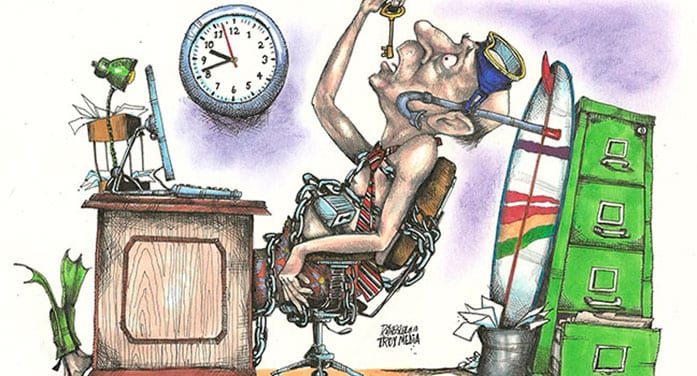 It seems like nothing short of their weight in gold will satisfy CUPE union leaders in New Brunswick.
It seems like nothing short of their weight in gold will satisfy CUPE union leaders in New Brunswick.
Over the next four years, CUPE is demanding nothing less than a 20 per cent raise. This would cost New Brunswick taxpayers an extra $158 million per year once fully implemented.
It would already be an unrealistic ask if the government had plenty of cash in its coffers, but it’s simply ridiculous after the pandemic ravaged the province’s finances.
This year, the government of New Brunswick is planning on spending $245 million more than it will bring in through revenue. This will bring the province’s debt to a record high of over $14.1 billion. That’s a bit over $18,000 per person.
If the government were to give CUPE this 20 per cent raise, it would have to make much harder choices to get the budget back to balance and stop the debt from growing further.
At a cost of $158 million per year, these raises would represent a nine per cent increase in every New Brunswicker’s income tax bill. That’s a huge amount of money.
Not only are government coffers not flush with cash, but small businesses in New Brunswick are still struggling to keep their heads above water.
 Currently, in the province, there are over 21,000 fewer jobs in the private sector than there were before the pandemic hit. These job losses are from businesses that have either had to fire people, have yet to reopen or have closed permanently.
Currently, in the province, there are over 21,000 fewer jobs in the private sector than there were before the pandemic hit. These job losses are from businesses that have either had to fire people, have yet to reopen or have closed permanently.
Across the province, one out of every 11 people who want a job is currently unemployed. That doesn’t include those who have seen their paycheques shrink.
In this context of private-sector job losses and high unemployment, it’s hard to imagine the average New Brunswicker could expect anything close to a 20 per cent raise in the next few years. And the provincial government will be struggling under the burden of its debt for decades to come.
It’s also important to note that, even before the pandemic, provincial bureaucrats fared much better than their neighbours in the private sector.
The average provincial government employee in the province received 12 per cent higher wages than private sector taxpayers were making, even after adjusting for education. This bureaucratic premium costs New Brunswick taxpayers roughly $500 million per year. If it weren’t for that premium pay, New Brunswick’s budget would have a $250 million surplus this year instead of a $250 million deficit.
On top of that, government employees also have access to numerous benefits that private sector New Brunswickers can only dream of. Take pensions, for instance. A full 92 per cent of government employees in New Brunswick are covered by a pension plan. That number falls to 23 per cent for private sector workers.
Giving in to CUPE’s demands for a 20 per cent pay raise would mean creating a much bigger divide between provincial government employees and their neighbours who don’t get government paycheques.
The government is right to resist giving in to CUPE’s demands. It’s time for CUPE to get back down to earth and ask for something that’s in line with everyday New Brunswickers’ reality and their ability to pay.
Renaud Brossard is the Interim Atlantic Director of the Canadian Taxpayers Federation.
Renaud is a Troy Media Thought Leader. For interview requests, click here.
The views, opinions and positions expressed by columnists and contributors are the authors’ alone. They do not inherently or expressly reflect the views, opinions and/or positions of our publication.
© Troy Media
Troy Media is an editorial content provider to media outlets and its own hosted community news outlets across Canada.


